Photo: Luis Ortiz/Clasos/LatinContent/GettyImages

Cafe Tacvba
news
Major Mexico Rock Fest Vive Latino Heads To Spain, Reveals Lineup
The festival's expansion to Spain solidifies Latin rock music's presence in Iberoamerican culture
Vive Latino, one of Mexico's biggest and most recognized rock music festivals featuring artists from Latin America and beyond, is headed to Spain in 2020.
The announcement, made Tuesday (Dec. 17) via social media, revealed that the Spanish counterpart will happen in Zaragoza on September 11 and 12. The inaugural lineup was announced today and will feature Cafe Tacvba, Aterciopelados, Ximena Sariñana, Enrique Bunbury, Molotov and more.
The festival's expansion to Spain solidifies Latin rock music's presence in Iberoamerican culture. Zaragoza was chosen as the home for the Spanish edition for its central location between major cities Madrid, Barcelona and Bilbao, festival promoter OCESA said in a statement.
"With the great synergy of two continents, America and Europe, and with music as our flag, Vive Latino comes to Spain in 2020," the statement continued.
Vive Latino has been held in Mexico City for the last 20 years and has been a formative festival for many Latin music artists. Its 21st installment in the country's capital will take place on March 14 and 15.
Residente To Play Gustavo Dudamel & Herbie Hancock's Power To The People! Festival
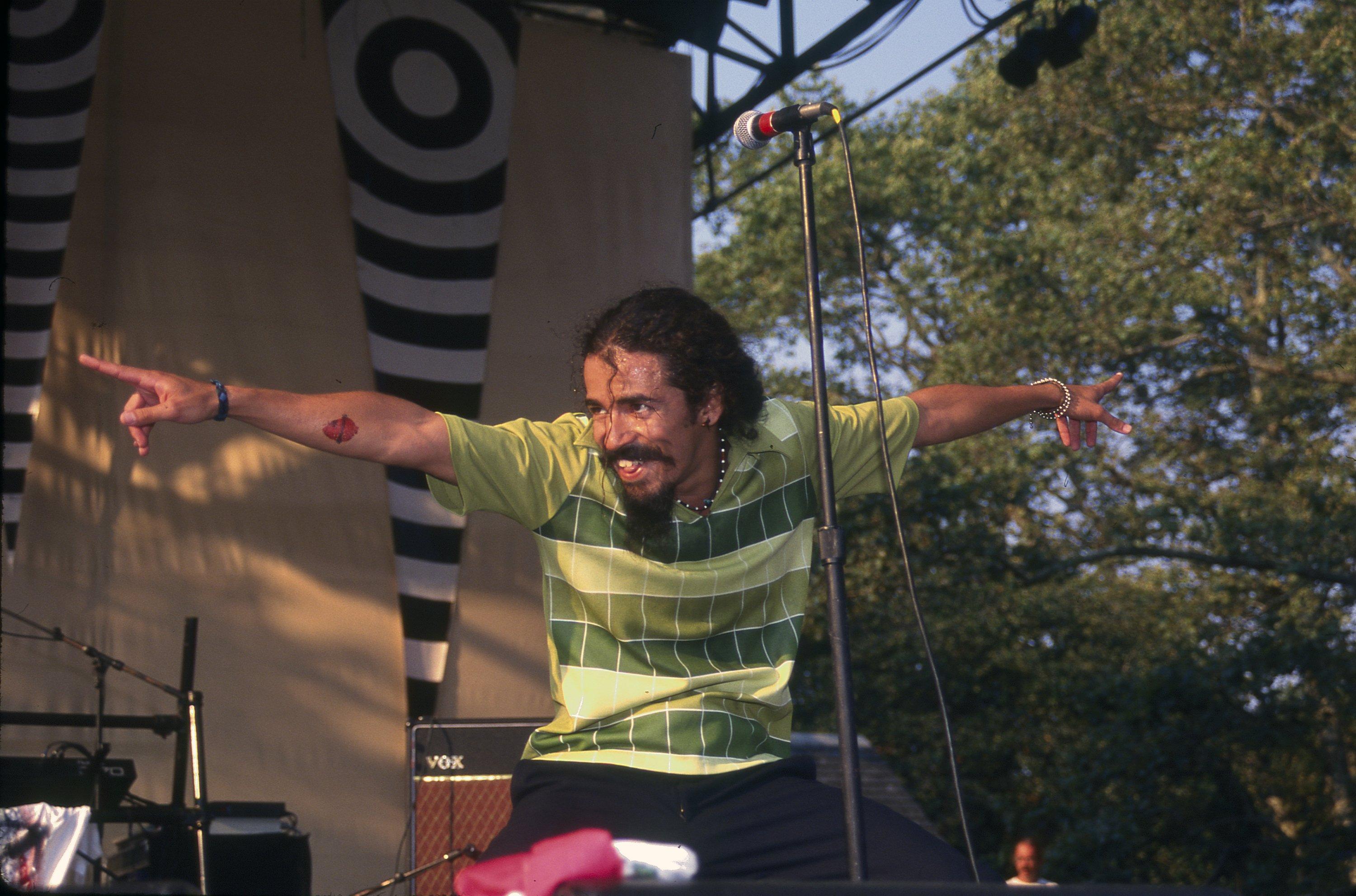
Photo: Bill Tompkins/Getty Images
feature
Revisiting 'Re': How Café Tacvba’s 1994 Masterpiece Changed Mexican Music Forever
Released on July 22, 'Re' saw the experimental rock en español group tackle themes of identity, death and national pride over a sprawling double album. On its 30th anniversary, consider Café Tacvba's landmark for Mexican rock opus.
Let’s not bury the lede here: Café Tacvba’s Re is one of the pantheon rock albums in the Spanish language. And arguably one of the greatest rock albums in any language.
Since its release 30 years ago on July 22, it’s been held up as one of the most ambitious and eclectic albums of its time, elevating the standard by which almost every rock en español band would be held to ever since — including its own creators. As a song cycle, Re is a whirlwind, with genre exercises and mini-suites scattered seemingly at random. Many pop critics liken its sonic diversity to the Beatles’ White Album, which is true if you’re just counting musical styles. But whereas the Fab Four were indulging their personalities within the group context, Café Tacvba conveyed solidarity in putting together an almost sui generis collection of madcap melodies.
As a whole, Re was a great leap forward for Latin American rock music, and a landmark for Mexican music in general.
It's important to consider the context of Café Tacvba in 1994. Despite its large population and long history as a Latin American cultural center, Mexico City lagged in establishing serious rock acts aside from outliers such as El Tri. Part of this is due to the politics of the age — including the Mexican government’s notorious crackdown on public rock concerts after several clashes between rock fans and police during the '70s — leaving the majority of Mexican rock bands resigned to playing in shady, underground clubs.
However, the 1980s saw the birth of BMG’s "Rock de tu Idioma" marketing blitz, and Mexican record companies finally began to put efforts into finding a national equivalent to South American-born stadium bands like Soda Stereo and Los Enanitos Verdes. On their second album, El Circo, Madilta Vecindad brought Mexico City to the forefront of the modern rock en español movement with their innovative mix of rock n’roll and ska crossed with pachuco subculture. Other bands that emerged around this time — from the gothic Caifanes (whom the band is currently touring with across the United States) to the arena rockers Maná — began building large audiences across the continent, but the scene still lacked a singular act that could elevate Mexican rock to the forefront.
Enter los Tacvbos. Aligning based on their shared passion for English new wave music, Café Tacvba was formed in the late '80s by college friends Rubén Albarrán and Joselo Rangel, who would serve as vocalist and guitarist, respectively. In time, they were joined by Joselo’s brother (and bassist) Quique and the multi-instrumentalist Emmanuel "Meme" de Real, choosing to name their band after a historic Mexico City café. Café Tacvba spent the late '80s evolving from a college garage band into one of Mexico’s most exciting live acts. After the release of their seminal 1992 self-titled debut — a frantic collection of ska-punk mayhem and colorful pop songs — expectations were high that the band could deliver a follow-up that would mirror their electric live show. What the band delivered would end up altering the entire scene completely.
Re is impactful and unique for many reasons, the first and most immediate being its adventurous studio production. Working again with rock en español superproducer Gustavo Santaolalla, Café Tacvba decided against continuing with the ska-punk foundations of El Circo and their own debut and embraced their own eclecticism. You can hear it from the jump with the huapango-via-jarana opening chords of "El Aparato," a sound previously unheard of on a pop record. Within its three-and-a-half minute runtime are layers of percussion and synthesizers complemented by glorious indigenous chants and one of Albarrán’s greatest vocals, rising and falling as the song demands. The movement in the final 45 seconds is ethereal, with its sheer sonic force sounding more apropos for the end of the world than the beginning of a double album.
Santaolalla revealed to Rolling Stone that he challenged the band, who responded with two batches of new songs for a sprawling double disc. Re is where a song like the sophisti-funk of "El Ciclón" is followed by two minutes of unadulterated thrash in "El Borrego." "24 Horas," meanwhile, mixes Beach Boys harmonies, Latin American lounge music, and post-punk beats. And that’s not even getting to the pure WTF of "El Puñal y El Corazón," with its multiple sections finding the middle ground between Pedro Infante and the Beatles, albeit with a merengue coda thrown in.
Perhaps the best testament to Santaolalla's production is "El Baile y El Salon," Re’s most popular song (and frequent concert encore for the band). It’s one of a string of great duets from Albarrán and Meme, perhaps the most earnest song in the band’s catalog with sweetly sincere lyrics. Santaolalla lets the music aid the storytelling: Meme’s vocals ride against stomping percussion and a grooving bass line, while Albarrán sings against a wave of synthesizers. In lesser hands, the song would be an easy paint-by-numbers arena rock anthem. Thankfully, Café Tacvba leaned into their own indulgences, and came out with something immortal.
Another important theme across Re is the band’s sense of discovery for their home country. Indeed, one of Café Tacvba’s intentions for Re was to showcase the sounds that they heard while touring through Mexico in support of their debut album. As Albarrán told the podcast "La Vida Circular," the band wanted to deepen their relationship with traditional Mexican music and infuse it with the punk, metal, and funk rock that they were already experimenting with.
The most striking example comes in the form of lead single "La Ingrata." With a bouncy rhythm and tweaked time signature inspired by norteño, the song is a common tale of desperation and heartbreak with a spiteful edge bled over from Café Tacvba’s punk roots. The fan favorite is also one of the band’s most influential songs, as it presaged a number bands combining norteño and alternative music — from Tijuana’s Nortec Collective at the turn of the century, to the contemporary corridos tumblados resurgence. Café Tacvba decided to stop performing the song in concert in 2017, due in part to the harsh lyrics about its female subject, and the escalating waves of violence against women within Mexico during this period. Albarrán noted around that time that "We were very young when it was composed and we were not as sensitive to this problem as we all are now."
Re did not sell well in Mexico upon release, though the band fermented interest during a sold out tour of Chile and Argentina. This, along with exposure from the recent launch of MTV in Mexico, was the major catalyst for the album’s fortunes taking an upturn. As the Mexican music listening public soon gathered, Re had something for everyone: From the smooth bolero of "Esa Noche," the frenetic banda of "El Fin de la Infancia," and the glittery Mexican pop of "Las Flores." Lyrically the band was speaking to its compadres, most notably on "El Metro," a bizarre short story of a lovelorn man trapped inside the Mexico City subway.
Despite its madcap sound and unabashed orgullo Mexicano, Re’s deepest theme is about the cyclical nature of life. There’s an obvious hint to it within the album art’s spiral conch shell, and more allusions in the song title "El Ciclón" and the reflexivity of "Pez" and "Verde," which bleed in-and-out of each other.
But dig deeper and the album is rife with references to life, death, rebirth, and natural law. "Ixtepec" sounds like a buoyant pop number but is really a cryptic tale about Death coming to collect his bounty, underlined with the refrain that "life is a cycle." Multiple songs, including "Trópico de Cáncer" and closer "El Balcón," reference reclamation of their birth land from the conquistadors, with the former song in particular telling a heartbreaking story of a civil engineer encountering the ecological damage to which he’s complicit. And there’s also the understated elegance of "El Tlatoani del Barrio," which recounts a love story in a pre-Columbian world soundtracked by Indigenous chants and a disco boogie.
Unlike many bands in a similar position, Café Tacvba never tried to replicate the magic of Re. Their next release was the covers album Alalancha de Éxitos, itself born out of their label’s reaction about Re’s lack of commercial hits (this bet paid off; the album was nominated for Best Latin Rock/Alternative Performance at the 40th GRAMMY Awards). Their visionary, hyper-experimental 1999 release Revés/Yo Soy, solidified their critical standing by winning a Latin GRAMMY for Best Rock Album and earning a GRAMMY nod. Today, it's a cult item currently unavailable on any streaming service due to label in-fighting.
After the turn of the century came Cuatro Caminos, a much more traditional sounding rock album, which led them to new critical and commercial heights, including their only GRAMMY win for Best Latin Rock/Alternative Album, and their career ever since has seen them find their groove as the thinking person’s favorite Mexican rock band. But within their exceptional catalog, Re remains a glorious outlier.
Even if Café Tacvba had never released another record after Re, their legacy would have remained secure. Re was among the major catalysts for the second wave of Mexican alterna-rock, which saw the likes of Julieta Venegas and Kinky elevating the genre with new sounds and perspectives. All modern rock owes a debt to the freewheeling spirit of Re, and the album’s continued influence and critical accolades are proof-positive of that.
In a sense, it’s almost poetic that Café Tacvba — a band formed through their shared idolization of David Bowie, the Clash, and the Cure — ended up proving to be as essential and venerable to rock history as any of their influences.
The Latest News About Latin Music
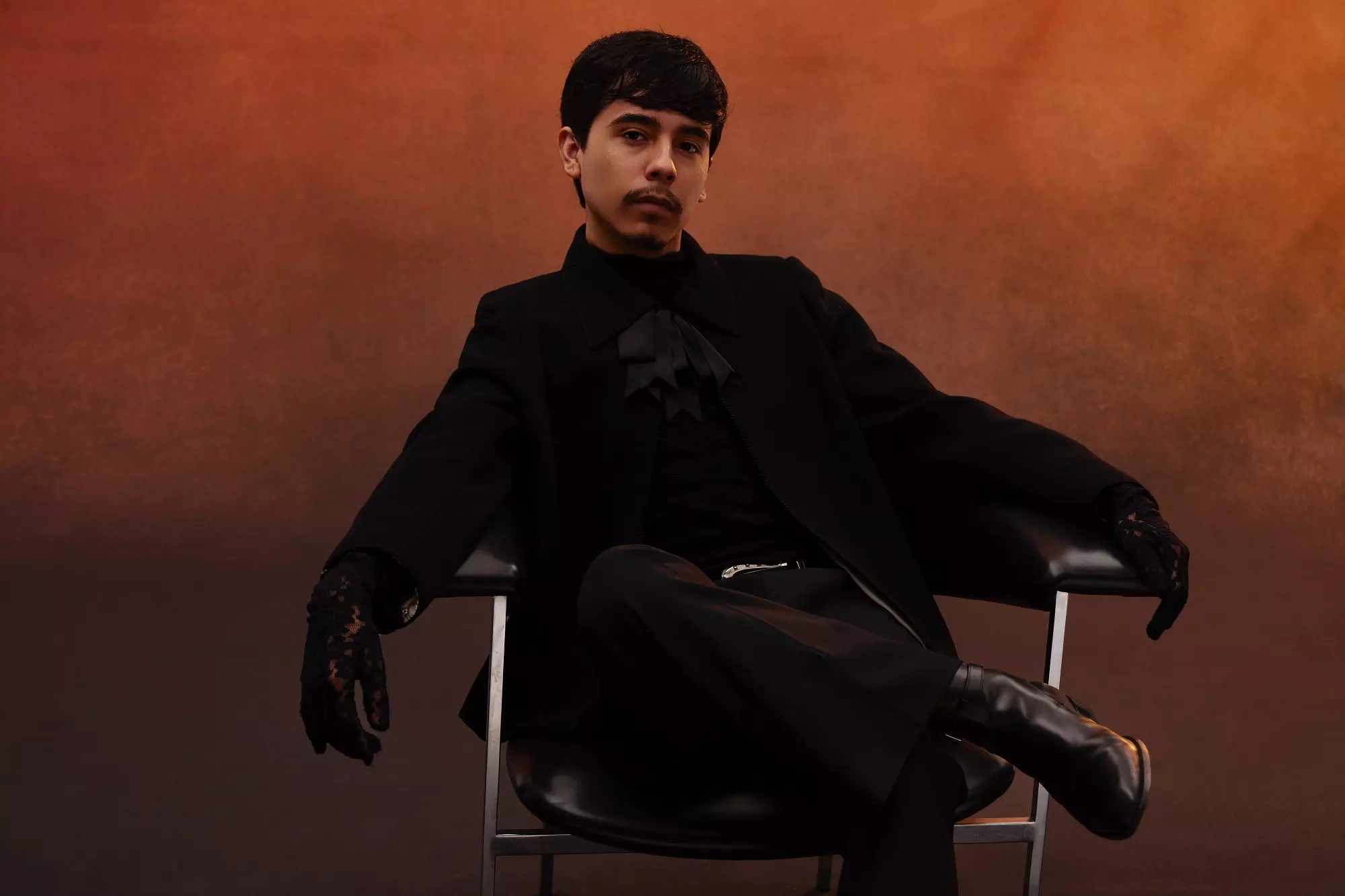
On 'Mirada,' Ivan Cornejo Redefines The Sound Of Sad Sierreño And Helps Fans Heal Through Music
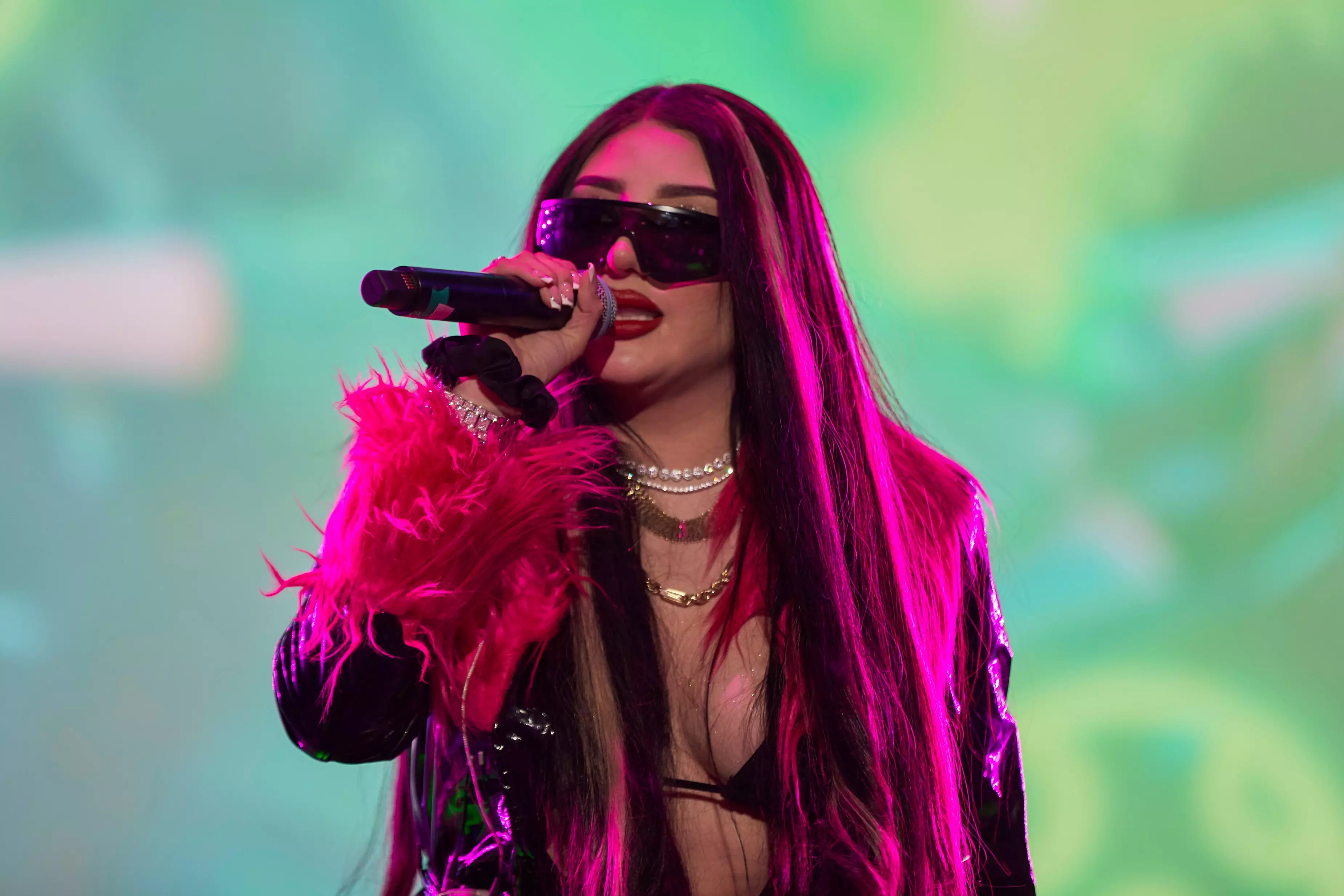
7 Artists Bringing Reggaeton Mexa To The World: El Malilla, Bellakath & More
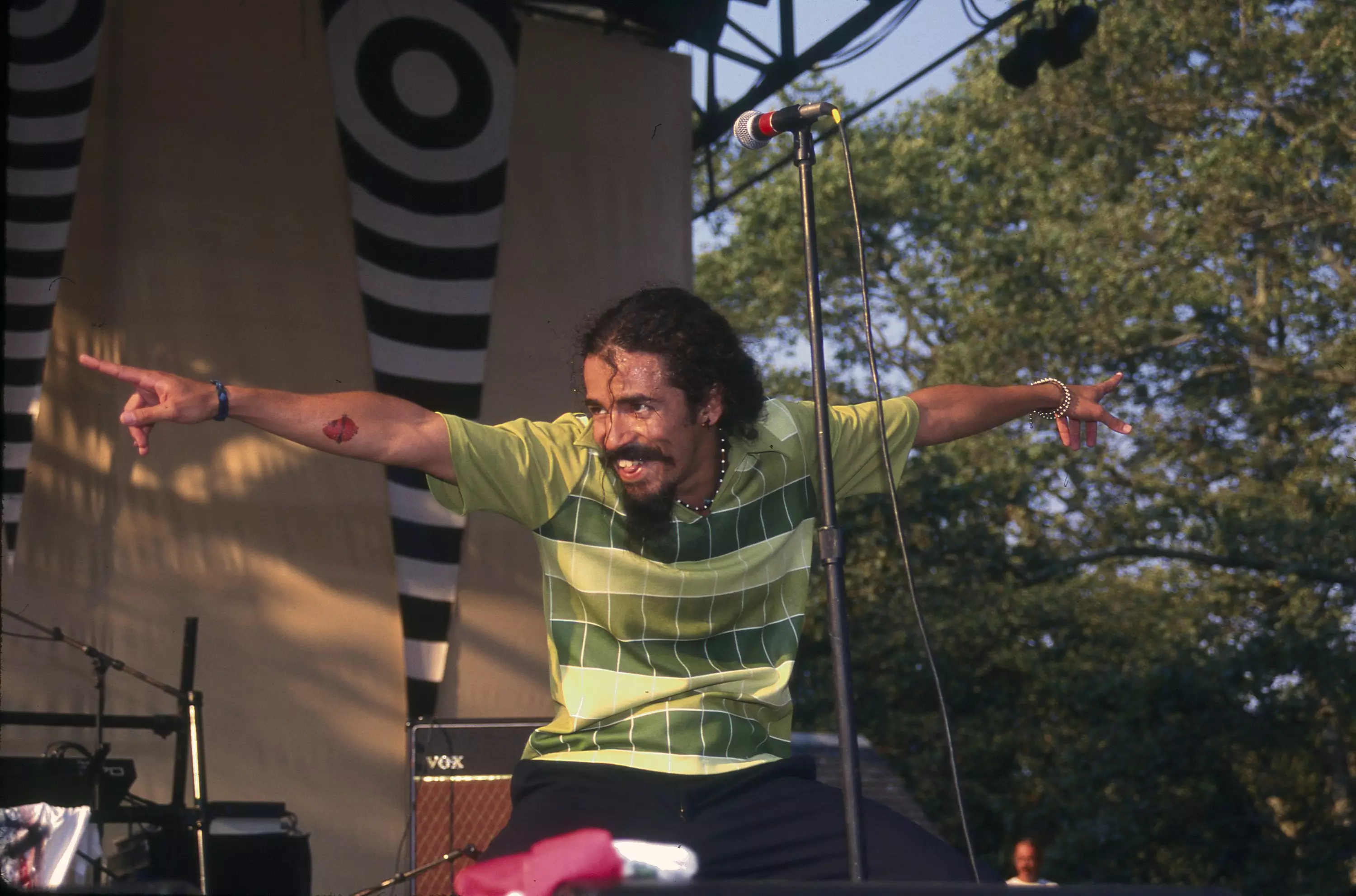
Revisiting 'Re': How Café Tacvba’s 1994 Masterpiece Changed Mexican Music Forever
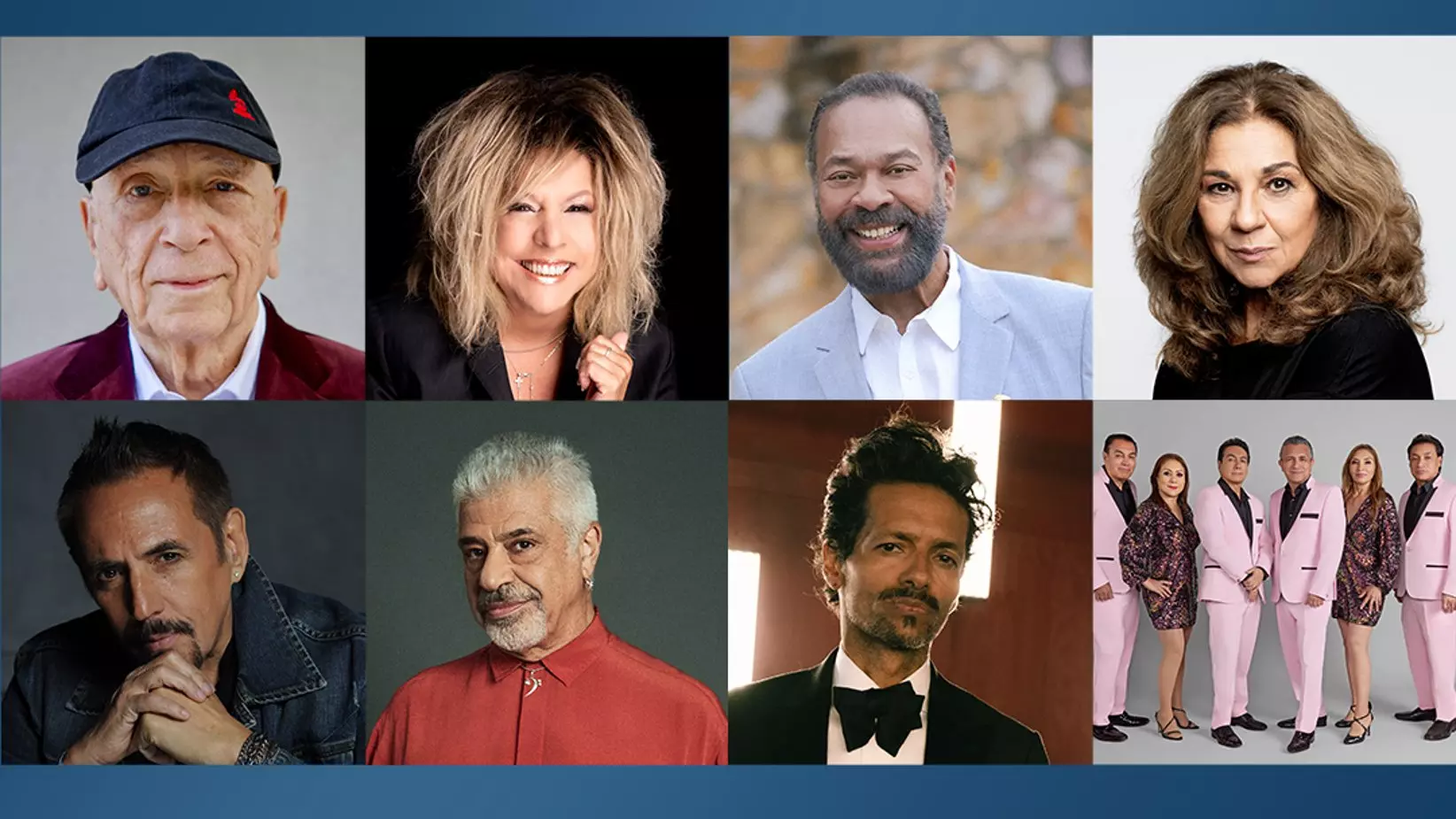
The Latin Recording Academy Announces 2024 Special Awards Recipients: Los Ángeles Azules, Draco Rosa, Albita, Lolita Flores & More

Nelly Furtado On How Remix Culture, ADHD & Gen Z Inspired Her New Album '7'

Photo: Jeff Kravitz/FilmMagic
video
GRAMMY Rewind: Kendrick Lamar Honors Hip-Hop's Greats While Accepting Best Rap Album GRAMMY For 'To Pimp a Butterfly' In 2016
Upon winning the GRAMMY for Best Rap Album for 'To Pimp a Butterfly,' Kendrick Lamar thanked those that helped him get to the stage, and the artists that blazed the trail for him.
Updated Friday Oct. 13, 2023 to include info about Kendrick Lamar's most recent GRAMMY wins, as of the 2023 GRAMMYs.
A GRAMMY veteran these days, Kendrick Lamar has won 17 GRAMMYs and has received 47 GRAMMY nominations overall. A sizable chunk of his trophies came from the 58th annual GRAMMY Awards in 2016, when he walked away with five — including his first-ever win in the Best Rap Album category.
This installment of GRAMMY Rewind turns back the clock to 2016, revisiting Lamar's acceptance speech upon winning Best Rap Album for To Pimp A Butterfly. Though Lamar was alone on stage, he made it clear that he wouldn't be at the top of his game without the help of a broad support system.
"First off, all glory to God, that's for sure," he said, kicking off a speech that went on to thank his parents, who he described as his "those who gave me the responsibility of knowing, of accepting the good with the bad."
Looking for more GRAMMYs news? The 2024 GRAMMY nominations are here!
He also extended his love and gratitude to his fiancée, Whitney Alford, and shouted out his Top Dawg Entertainment labelmates. Lamar specifically praised Top Dawg's CEO, Anthony Tiffith, for finding and developing raw talent that might not otherwise get the chance to pursue their musical dreams.
"We'd never forget that: Taking these kids out of the projects, out of Compton, and putting them right here on this stage, to be the best that they can be," Lamar — a Compton native himself — continued, leading into an impassioned conclusion spotlighting some of the cornerstone rap albums that came before To Pimp a Butterfly.
"Hip-hop. Ice Cube. This is for hip-hop," he said. "This is for Snoop Dogg, Doggystyle. This is for Illmatic, this is for Nas. We will live forever. Believe that."
To Pimp a Butterfly singles "Alright" and "These Walls" earned Lamar three more GRAMMYs that night, the former winning Best Rap Performance and Best Rap Song and the latter taking Best Rap/Sung Collaboration (the song features Bilal, Anna Wise and Thundercat). He also won Best Music Video for the remix of Taylor Swift's "Bad Blood."
Lamar has since won Best Rap Album two more times, taking home the golden gramophone in 2018 for his blockbuster LP DAMN., and in 2023 for his bold fifth album, Mr. Morale & the Big Steppers.
Watch Lamar's full acceptance speech above, and check back at GRAMMY.com every Friday for more GRAMMY Rewind episodes.
10 Essential Facts To Know About GRAMMY-Winning Rapper J. Cole

Photo: Rachel Kupfer
list
A Guide To Modern Funk For The Dance Floor: L'Imperatrice, Shiro Schwarz, Franc Moody, Say She She & Moniquea
James Brown changed the sound of popular music when he found the power of the one and unleashed the funk with "Papa's Got a Brand New Bag." Today, funk lives on in many forms, including these exciting bands from across the world.
It's rare that a genre can be traced back to a single artist or group, but for funk, that was James Brown. The Godfather of Soul coined the phrase and style of playing known as "on the one," where the first downbeat is emphasized, instead of the typical second and fourth beats in pop, soul and other styles. As David Cheal eloquently explains, playing on the one "left space for phrases and riffs, often syncopated around the beat, creating an intricate, interlocking grid which could go on and on." You know a funky bassline when you hear it; its fat chords beg your body to get up and groove.
Brown's 1965 classic, "Papa's Got a Brand New Bag," became one of the first funk hits, and has been endlessly sampled and covered over the years, along with his other groovy tracks. Of course, many other funk acts followed in the '60s, and the genre thrived in the '70s and '80s as the disco craze came and went, and the originators of hip-hop and house music created new music from funk and disco's strong, flexible bones built for dancing.
Legendary funk bassist Bootsy Collins learned the power of the one from playing in Brown's band, and brought it to George Clinton, who created P-funk, an expansive, Afrofuturistic, psychedelic exploration of funk with his various bands and projects, including Parliament-Funkadelic. Both Collins and Clinton remain active and funkin', and have offered their timeless grooves to collabs with younger artists, including Kali Uchis, Silk Sonic, and Omar Apollo; and Kendrick Lamar, Flying Lotus, and Thundercat, respectively.
In the 1980s, electro-funk was born when artists like Afrika Bambaataa, Man Parrish, and Egyptian Lover began making futuristic beats with the Roland TR-808 drum machine — often with robotic vocals distorted through a talk box. A key distinguishing factor of electro-funk is a de-emphasis on vocals, with more phrases than choruses and verses. The sound influenced contemporaneous hip-hop, funk and electronica, along with acts around the globe, while current acts like Chromeo, DJ Stingray, and even Egyptian Lover himself keep electro-funk alive and well.
Today, funk lives in many places, with its heavy bass and syncopated grooves finding way into many nooks and crannies of music. There's nu-disco and boogie funk, nodding back to disco bands with soaring vocals and dance floor-designed instrumentation. G-funk continues to influence Los Angeles hip-hop, with innovative artists like Dam-Funk and Channel Tres bringing the funk and G-funk, into electro territory. Funk and disco-centered '70s revival is definitely having a moment, with acts like Ghost Funk Orchestra and Parcels, while its sparkly sprinklings can be heard in pop from Dua Lipa, Doja Cat, and, in full "Soul Train" character, Silk Sonic. There are also acts making dreamy, atmospheric music with a solid dose of funk, such as Khruangbin’s global sonic collage.
There are many bands that play heavily with funk, creating lush grooves designed to get you moving. Read on for a taste of five current modern funk and nu-disco artists making band-led uptempo funk built for the dance floor. Be sure to press play on the Spotify playlist above, and check out GRAMMY.com's playlist on Apple Music, Amazon Music and Pandora.
Say She She
Aptly self-described as "discodelic soul," Brooklyn-based seven-piece Say She She make dreamy, operatic funk, led by singer-songwriters Nya Gazelle Brown, Piya Malik and Sabrina Mileo Cunningham. Their '70s girl group-inspired vocal harmonies echo, sooth and enchant as they cover poignant topics with feminist flair.
While they’ve been active in the New York scene for a few years, they’ve gained wider acclaim for the irresistible music they began releasing this year, including their debut album, Prism. Their 2022 debut single "Forget Me Not" is an ode to ground-breaking New York art collective Guerilla Girls, and "Norma" is their protest anthem in response to the news that Roe vs. Wade could be (and was) overturned. The band name is a nod to funk legend Nile Rodgers, from the "Le freak, c'est chi" exclamation in Chic's legendary tune "Le Freak."
Moniquea
Moniquea's unique voice oozes confidence, yet invites you in to dance with her to the super funky boogie rhythms. The Pasadena, California artist was raised on funk music; her mom was in a cover band that would play classics like Aretha Franklin’s "Get It Right" and Gladys Knight’s "Love Overboard." Moniquea released her first boogie funk track at 20 and, in 2011, met local producer XL Middelton — a bonafide purveyor of funk. She's been a star artist on his MoFunk Records ever since, and they've collabed on countless tracks, channeling West Coast energy with a heavy dose of G-funk, sunny lyrics and upbeat, roller disco-ready rhythms.
Her latest release is an upbeat nod to classic West Coast funk, produced by Middleton, and follows her February 2022 groovy, collab-filled album, On Repeat.
Shiro Schwarz
Shiro Schwarz is a Mexico City-based duo, consisting of Pammela Rojas and Rafael Marfil, who helped establish a modern funk scene in the richly creative Mexican metropolis. On "Electrify" — originally released in 2016 on Fat Beats Records and reissued in 2021 by MoFunk — Shiro Schwarz's vocals playfully contrast each other, floating over an insistent, upbeat bassline and an '80s throwback electro-funk rhythm with synth flourishes.
Their music manages to be both nostalgic and futuristic — and impossible to sit still to. 2021 single "Be Kind" is sweet, mellow and groovy, perfect chic lounge funk. Shiro Schwarz’s latest track, the joyfully nostalgic "Hey DJ," is a collab with funkstress Saucy Lady and U-Key.
L'Impératrice
L'Impératrice (the empress in French) are a six-piece Parisian group serving an infectiously joyful blend of French pop, nu-disco, funk and psychedelia. Flore Benguigui's vocals are light and dreamy, yet commanding of your attention, while lyrics have a feminist touch.
During their energetic live sets, L'Impératrice members Charles de Boisseguin and Hagni Gwon (keys), David Gaugué (bass), Achille Trocellier (guitar), and Tom Daveau (drums) deliver extended instrumental jam sessions to expand and connect their music. Gaugué emphasizes the thick funky bass, and Benguigui jumps around the stage while sounding like an angel. L’Impératrice’s latest album, 2021’s Tako Tsubo, is a sunny, playful French disco journey.
Franc Moody
Franc Moody's bio fittingly describes their music as "a soul funk and cosmic disco sound." The London outfit was birthed by friends Ned Franc and Jon Moody in the early 2010s, when they were living together and throwing parties in North London's warehouse scene. In 2017, the group grew to six members, including singer and multi-instrumentalist Amber-Simone.
Their music feels at home with other electro-pop bands like fellow Londoners Jungle and Aussie act Parcels. While much of it is upbeat and euphoric, Franc Moody also dips into the more chilled, dreamy realm, such as the vibey, sultry title track from their recently released Into the Ether.

Photo: Steven Sebring
interview
Living Legends: Billy Idol On Survival, Revival & Breaking Out Of The Cage
"One foot in the past and one foot into the future," Billy Idol says, describing his decade-spanning career in rock. "We’ve got the best of all possible worlds because that has been the modus operandi of Billy Idol."
Living Legends is a series that spotlights icons in music still going strong today. This week, GRAMMY.com spoke with Billy Idol about his latest EP, Cage, and continuing to rock through decades of changing tastes.
Billy Idol is a true rock 'n' roll survivor who has persevered through cultural shifts and personal struggles. While some may think of Idol solely for "Rebel Yell" and "White Wedding," the singer's musical influences span genres and many of his tunes are less turbo-charged than his '80s hits would belie.
Idol first made a splash in the latter half of the '70s with the British punk band Generation X. In the '80s, he went on to a solo career combining rock, pop, and punk into a distinct sound that transformed him and his musical partner, guitarist Steve Stevens, into icons. They have racked up multiple GRAMMY nominations, in addition to one gold, one double platinum, and four platinum albums thanks to hits like "Cradle Of Love," "Flesh For Fantasy," and "Eyes Without A Face."
But, unlike many legacy artists, Idol is anything but a relic. Billy continues to produce vital Idol music by collaborating with producers and songwriters — including Miley Cyrus — who share his forward-thinking vision. He will play a five-show Vegas residency in November, and filmmaker Jonas Akerlund is working on a documentary about Idol’s life.
His latest release is Cage, the second in a trilogy of annual four-song EPs. The title track is a classic Billy Idol banger expressing the desire to free himself from personal constraints and live a better life. Other tracks on Cage incorporate metallic riffing and funky R&B grooves.
Idol continues to reckon with his demons — they both grappled with addiction during the '80s — and the singer is open about those struggles on the record and the page. (Idol's 2014 memoir Dancing With Myself, details a 1990 motorcycle accident that nearly claimed a leg, and how becoming a father steered him to reject hard drugs. "Bitter Taste," from his last EP, The Roadside, reflects on surviving the accident.)
Although Idol and Stevens split in the late '80s — the skilled guitarist fronted Steve Stevens & The Atomic Playboys, and collaborated with Michael Jackson, Rick Ocasek, Vince Neil, and Harold Faltermeyer (on the GRAMMY-winning "Top Gun Anthem") — their common history and shared musical bond has been undeniable. The duo reunited in 2001 for an episode of "VH1 Storytellers" and have been back in the saddle for two decades. Their union remains one of the strongest collaborations in rock 'n roll history.
While there is recognizable personnel and a distinguishable sound throughout a lot of his work, Billy Idol has always pushed himself to try different things. Idol discusses his musical journey, his desire to constantly move forward, and the strong connection that he shares with Stevens.
Steve has said that you like to mix up a variety of styles, yet everyone assumes you're the "Rebel Yell"/"White Wedding" guy. But if they really listen to your catalog, it's vastly different.
Yeah, that's right. With someone like Steve Stevens, and then back in the day Keith Forsey producing... [Before that] Generation X actually did move around inside punk rock. We didn't stay doing just the Ramones two-minute music. We actually did a seven-minute song. [Laughs]. We did always mix things up.
Then when I got into my solo career, that was the fun of it. With someone like Steve, I knew what he could do. I could see whatever we needed to do, we could nail it. The world was my oyster musically.
"Cage" is a classic-sounding Billy Idol rocker, then "Running From The Ghost" is almost metal, like what the Devil's Playground album was like back in the mid-2000s. "Miss Nobody" comes out of nowhere with this pop/R&B flavor. What inspired that?
We really hadn't done anything like that since something like "Flesh For Fantasy" [which] had a bit of an R&B thing about it. Back in the early days of Billy Idol, "Hot In The City" and "Mony Mony" had girls [singing] on the backgrounds.
We always had a bit of R&B really, so it was actually fun to revisit that. We just hadn't done anything really quite like that for a long time. That was one of the reasons to work with someone like Sam Hollander [for the song "Rita Hayworth"] on The Roadside. We knew we could go [with him] into an R&B world, and he's a great songwriter and producer. That's the fun of music really, trying out these things and seeing if you can make them stick.
I listen to new music by veteran artists and debate that with some people. I'm sure you have those fans that want their nostalgia, and then there are some people who will embrace the newer stuff. Do you find it’s a challenge to reach people with new songs?
Obviously, what we're looking for is, how do we somehow have one foot in the past and one foot into the future? We’ve got the best of all possible worlds because that has been the modus operandi of Billy Idol.
You want to do things that are true to you, and you don't just want to try and do things that you're seeing there in the charts today. I think that we're achieving it with things like "Running From The Ghost" and "Cage" on this new EP. I think we’re managing to do both in a way.
**Obviously, "Running From The Ghost" is about addiction, all the stuff that you went through, and in "Cage" you’re talking about freeing yourself from a lot of personal shackles. Was there any one moment in your life that made you really thought I have to not let this weigh me down anymore?**
I mean, things like the motorcycle accident I had, that was a bit of a wake up call way back. It was 32 years ago. But there were things like that, years ago, that gradually made me think about what I was doing with my life. I didn't want to ruin it, really. I didn't want to throw it away, and it made [me] be less cavalier.
I had to say to myself, about the drugs and stuff, that I've been there and I've done it. There’s no point in carrying on doing it. You couldn't get any higher. You didn't want to throw your life away casually, and I was close to doing that. It took me a bit of time, but then gradually I was able to get control of myself to a certain extent [with] drugs and everything. And I think Steve's done the same thing. We're on a similar path really, which has been great because we're in the same boat in terms of lyrics and stuff.
So a lot of things like that were wake up calls. Even having grandchildren and just watching my daughter enlarging her family and everything; it just makes you really positive about things and want to show a positive side to how you're feeling, about where you're going. We've lived with the demons so long, we've found a way to live with them. We found a way to be at peace with our demons, in a way. Maybe not completely, but certainly to where we’re enjoying what we do and excited about it.
[When writing] "Running From The Ghost" it was easy to go, what was the ghost for us? At one point, we were very drug addicted in the '80s. And Steve in particular is super sober [now]. I mean, I still vape pot and stuff. I don’t know how he’s doing it, but it’s incredible. All I want to be able to do is have a couple of glasses of wine at a restaurant or something. I can do that now.
I think working with people that are super talented, you just feel confident. That is a big reason why you open up and express yourself more because you feel comfortable with what's around you.
Did you watch Danny Boyle's recent Sex Pistols mini-series?
I did, yes.
You had a couple of cameos; well, an actor who portrayed you did. How did you react to it? How accurate do you think it was in portraying that particular time period?
I love Jonesy’s book, I thought his book was incredible. It's probably one of the best bio books really. It was incredible and so open. I was looking forward to that a lot.
It was as if [the show] kind of stayed with Steve [Jones’ memoir] about halfway through, and then departed from it. [John] Lydon, for instance, was never someone I ever saw acting out; he's more like that today. I never saw him do something like jump up in the room and run around going crazy. The only time I saw him ever do that was when they signed the recording deal with Virgin in front of Buckingham Palace. Whereas Sid Vicious was always acting out; he was always doing something in a horrible way or shouting at someone. I don't remember John being like that. I remember him being much more introverted.
But then I watched interviews with some of the actors about coming to grips with the parts they were playing. And they were saying, we knew punk rock happened but just didn't know any of the details. So I thought well, there you go. If ["Pistol" is] informing a lot of people who wouldn't know anything about punk rock, maybe that's what's good about it.
Maybe down the road John Lydon will get the chance to do John's version of the Pistols story. Maybe someone will go a lot deeper into it and it won't be so surface. But maybe you needed this just to get people back in the flow.
We had punk and metal over here in the States, but it feels like England it was legitimately more dangerous. British society was much more rigid.
It never went [as] mega in America. It went big in England. It exploded when the Pistols did that interview with [TV host Bill] Grundy, that lorry truck driver put his boot through his own TV, and all the national papers had "the filth and the fury" [headlines].
We went from being unknown to being known overnight. We waited a year, Generation X. We even told them [record labels] no for nine months to a year. Every record company wanted their own punk rock group. So it went really mega in England, and it affected the whole country – the style, the fashions, everything. I mean, the Ramones were massive in England. Devo had a No. 1 song [in England] with "Satisfaction" in '77. Actually, Devo was as big as or bigger than the Pistols.
You were ahead of the pop-punk thing that happened in the late '90s, and a lot of it became tongue-in-cheek by then. It didn't have the same sense of rebelliousness as the original movement. It was more pop.
It had become a style. There was a famous book in England called Revolt Into Style — and that's what had happened, a revolt that turned into style which then they were able to duplicate in their own way. Even recently, Billie Joe [Armstrong] did his own version of "Gimme Some Truth," the Lennon song we covered way back in 1977.
When we initially were making [punk] music, it hadn't become accepted yet. It was still dangerous and turned into a style that people were used to. We were still breaking barriers.
You have a band called Generation Sex with Steve Jones and Paul Cook. I assume you all have an easier time playing Pistols and Gen X songs together now and not worrying about getting spit on like back in the '70s?
Yeah, definitely. When I got to America I told the group I was putting it together, "No one spits at the audience."
We had five years of being spat on [in the UK], and it was revolting. And they spat at you if they liked you. If they didn't like it they smashed your gear up. One night, I remember I saw blood on my T-shirt, and I think Joe Strummer got meningitis when spit went in his mouth.
You had to go through a lot to become successful, it wasn't like you just kind of got up there and did a couple of gigs. I don't think some young rock bands really get that today.
With punk going so mega in England, we definitely got a leg up. We still had a lot of work to get where we got to, and rightly so because you find out that you need to do that. A lot of groups in the old days would be together three to five years before they ever made a record, and that time is really important. In a way, what was great about punk rock for me was it was very much a learning period. I really learned a lot [about] recording music and being in a group and even writing songs.
Then when I came to America, it was a flow, really. I also really started to know what I wanted Billy Idol to be. It took me a little bit, but I kind of knew what I wanted Billy Idol to be. And even that took a while to let it marinate.
You and Miley Cyrus have developed a good working relationship in the last several years. How do you think her fans have responded to you, and your fans have responded to her?
I think they're into it. It's more the record company that she had didn't really get "Night Crawling"— it was one of the best songs on Plastic Hearts, and I don't think they understood that. They wanted to go with Dua Lipa, they wanted to go with the modern, young acts, and I don't think they realized that that song was resonating with her fans. Which is a shame really because, with Andrew Watt producing, it's a hit song.
But at the same time, I enjoyed doing it. It came out really good and it's very Billy Idol. In fact, I think it’s more Billy Idol than Miley Cyrus. I think it shows you where Andrew Watt was. He was excited about doing a Billy Idol track. She's fun to work with. She’s a really great person and she works at her singing — I watched her rehearsing for the Super Bowl performance she gave. She rehearsed all Saturday morning, all Saturday afternoon, and Sunday morning and it was that afternoon. I have to admire her fortitude. She really cares.
I remember when you went on "Viva La Bam" back in 2005 and decided to give Bam Margera’s Lamborghini a new sunroof by taking a power saw to it. Did he own that car? Was that a rental?
I think it was his car.
Did he get over it later on?
He loved it. [Laughs] He’s got a wacky sense of humor. He’s fantastic, actually. I’m really sorry to see what he's been going through just lately. He's going through a lot, and I wish him the best. He's a fantastic person, and it's a shame that he's struggling so much with his addictions. I know what it's like. It's not easy.
Musically, what is the synergy like with you guys during the past 10 years, doing Kings and Queens of the Underground and this new stuff? What is your working relationship like now in this more sober, older, mature version of you two as opposed to what it was like back in the '80s?
In lots of ways it’s not so different because we always wrote the songs together, we always talked about what we're going to do together. It was just that we were getting high at the same time.We're just not getting [that way now] but we're doing all the same things.
We're still talking about things, still [planning] things:What are we going to do next? How are we going to find new people to work with? We want to find new producers. Let's be a little bit more timely about putting stuff out.That part of our relationship is the same, you know what I mean? That never got affected. We just happened to be overloading in the '80s.
The relationship’s… matured and it's carrying on being fruitful, and I think that's pretty amazing. Really, most people don't get to this place. Usually, they hate each other by now. [Laughs] We also give each other space. We're not stopping each other doing things outside of what we’re working on together. All of that enables us to carry on working together. I love and admire him. I respect him. He's been fantastic. I mean, just standing there on stage with him is always a treat. And he’s got an immensely great sense of humor. I think that's another reason why we can hang together after all this time because we've got the sense of humor to enable us to go forward.
There's a lot of fan reaction videos online, and I noticed a lot of younger women like "Rebel Yell" because, unlike a lot of other '80s alpha male rock tunes, you're talking about satisfying your lover.
It was about my girlfriend at the time, Perri Lister. It was about how great I thought she was, how much I was in love with her, and how great women are, how powerful they are.
It was a bit of a feminist anthem in a weird way. It was all about how relationships can free you and add a lot to your life. It was a cry of love, nothing to do with the Civil War or anything like that. Perri was a big part of my life, a big part of being Billy Idol. I wanted to write about it. I'm glad that's the effect.
Is there something you hope people get out of the songs you've been doing over the last 10 years? Do you find yourself putting out a message that keeps repeating?
Well, I suppose, if anything, is that you can come to terms with your life, you can keep a hold of it. You can work your dreams into reality in a way and, look, a million years later, still be enjoying it.
The only reason I'm singing about getting out of the cage is because I kicked out of the cage years ago. I joined Generation X when I said to my parents, "I'm leaving university, and I'm joining a punk rock group." And they didn't even know what a punk rock group was. Years ago, I’d write things for myself that put me on this path, so that maybe in 2022 I could sing something like "Cage" and be owning this territory and really having a good time. This is the life I wanted.
The original UK punk movement challenged societal norms. Despite all the craziness going on throughout the world, it seems like a lot of modern rock bands are afraid to do what you guys were doing. Do you think we'll see a shift in that?
Yeah. Art usually reacts to things, so I would think eventually there will be a massive reaction to the pop music that’s taken over — the middle of the road music, and then this kind of right wing politics. There will be a massive reaction if there's not already one. I don’t know where it will come from exactly. You never know who's gonna do [it].
